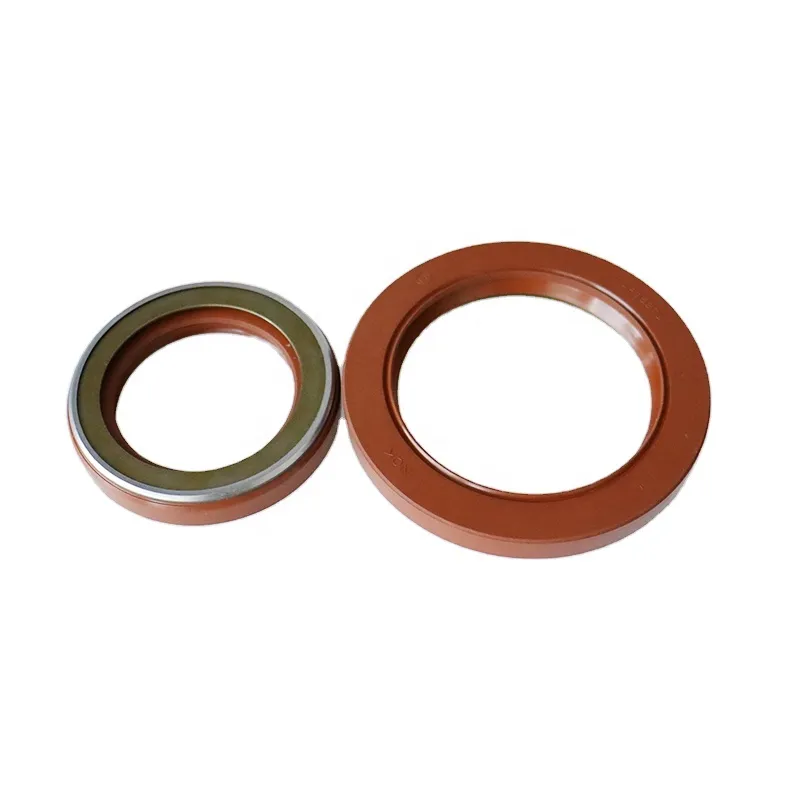nov. . 25, 2024 19:24 Back to list
oil seal hydraulic
Understanding Oil Seal Hydraulic Systems
Oil seals are essential components in various hydraulic systems, playing a critical role in maintaining the integrity and efficiency of these systems. Whether in automotive applications, industrial machinery, or aerospace mechanisms, oil seals help prevent leakage of hydraulic fluids, ensuring the reliable operation of hydraulic components. This article delves into the function, types, benefits, and maintenance of oil seals in hydraulic systems.
What Are Oil Seals?
Oil seals, also known as radial shaft seals, are designed to seal the interface between static and dynamic components. They are typically constructed from elastomeric materials, such as rubber, which provide flexibility and durability. The primary purpose of an oil seal is to retain lubricating oil within the system while preventing the ingress of contaminants such as dirt, dust, and water, which could compromise performance.
Function of Oil Seals in Hydraulic Systems
In hydraulic systems, the proper sealing of hydraulic fluid is paramount. When an oil seal is properly installed, it creates a barrier that prevents fluid from leaking out of the system, thus maintaining pressure and ensuring efficient operation. This is crucial for applications like hydraulic cylinders, pumps, and motors, where even minor leaks can lead to significant performance issues, loss of pressure, and increased wear on components.
Moreover, oil seals also protect internal components from external contaminants. Contaminants can cause abrasiveness, leading to degradation of components and potential system failure. Therefore, a reliable oil seal not only keeps the necessary fluids contained but also prolongs the life of the equipment.
Types of Oil Seals
There are various types of oil seals used in hydraulic systems, including
1. Single Lip Seals The most common type, designed to retain oil on one side and prevent contaminants from entering. 2. Double Lip Seals These have an additional lip, which provides extra protection against dust and contaminants, making them ideal for harsher environments.
3. Spring-energized Seals These seals use a spring to maintain contact with the shaft, ensuring a tight seal even under varying pressure and temperature conditions.
4. PTFE Seals Made from polytetrafluoroethylene, these seals offer superior chemical resistance and can withstand extreme temperatures and pressures, making them suitable for specialized hydraulic applications.
oil seal hydraulic

Benefits of Using Oil Seals
The advantages of implementing oil seals in hydraulic systems are manifold
- Leak Prevention Oil seals are designed to prevent fluid leakage, which is vital for maintaining operational efficiency and reducing maintenance costs.
- Contamination Control By blocking the ingress of dirt and other contaminants, oil seals help preserve the integrity of hydraulic fluid and internal components.
- Increased Durability Quality oil seals can significantly extend the lifespan of hydraulic systems by protecting against wear and tear.
- Improved Performance With proper sealing, hydraulic systems can operate at optimal performance levels, resulting in better productivity and efficiency.
Maintenance of Oil Seals
To ensure the longevity of oil seals, routine maintenance is paramount. Regular inspection for signs of wear, distortion, or damage is crucial. If leaks are detected, the seal must be replaced immediately to prevent further damage to the hydraulic system. Proper installation is also critical; seals should be installed according to manufacturer specifications to avoid misalignment and subsequent failure.
Additionally, using the right type of oil seal for the specific application, considering factors like temperature, pressure, and fluid compatibility, is essential for optimal performance.
Conclusion
In the world of hydraulic systems, oil seals are indispensable components that play a vital role in ensuring functionality, safety, and longevity. Understanding their purpose, types, and maintenance is crucial for anyone working with or relying on hydraulic technology. By prioritizing oil seal integrity, one can achieve efficient and reliable hydraulic performance, ultimately leading to enhanced operational outcomes.
-
The Trans-formative Journey of Wheel Hub Oil Seals
NewsJun.06,2025
-
Graphene-Enhanced Oil Seals: Revolutionizing High-Pressure Oil Sealing
NewsJun.06,2025
-
Future of Hydraulic Sealing: Advanced Intelligent TCN Oil Seals
NewsJun.06,2025
-
Don’t Let a Broken TCV Oil Seal Ruin Your Day
NewsJun.06,2025
-
Bio-Inspired Dust Seals for Better Sealing Performance
NewsJun.06,2025
-
Biodegradable and Sustainable Hydraulic Seal Materials
NewsJun.06,2025
-
Top Oil Seal Solutions for Your Industrial Needs
NewsMay.22,2025
Products categories
















